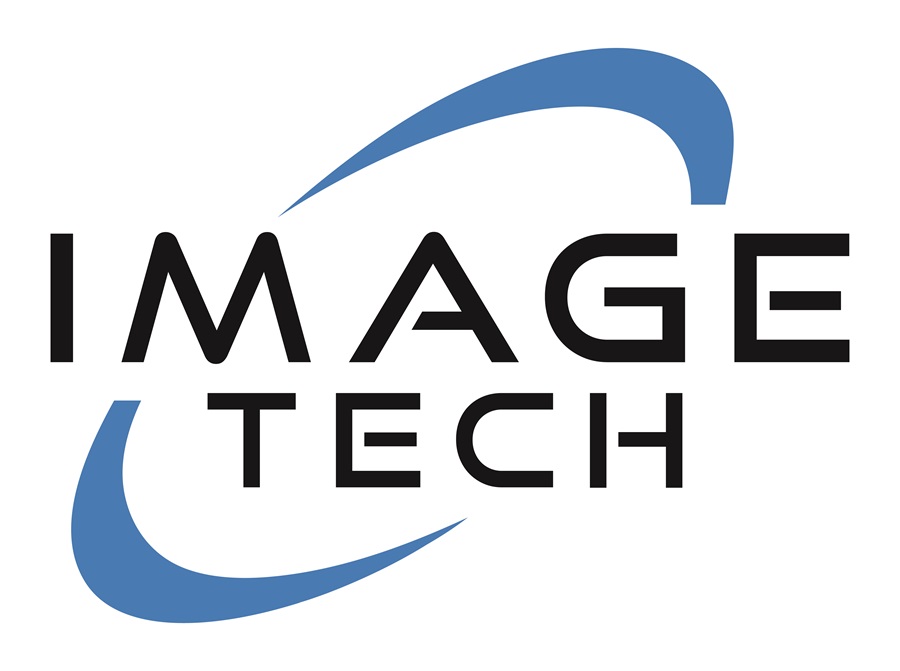Turkey’s social scene is undergoing a fascinating transformation. What used to be lively bars and traditional hangouts are now evolving into modern gaming hubs, blending technology with entertainment. This shift isn’t just about keeping up with trends—it’s reshaping how we experience leisure and connect with others in a digital age.
From sleek betting apps to immersive gaming experiences, these revamped spaces are attracting a diverse crowd eager for more than just a drink. Just as networking groups foster connections between professionals, these modern gaming spaces bridge the gap between tradition and innovation, creating a dynamic environment where culture and technology thrive together.
Overview Of Gaming Evolution In Turkey
Gaming in Turkey has grown from simple leisure pursuits to a major segment of the entertainment industry. Historically, people engaged in activities like tavla (backgammon) at local tea houses or spent evenings in traditional bars. Today, digital transformation has expanded gaming, replacing analog entertainment with technology-driven solutions. In this evolving landscape, Bahisbey stands out as a modern betting platform, combining innovation with user-friendly features to offer a seamless and engaging gaming experience tailored to Turkish players.
The Rise of Digital Platforms
Online betting platforms and gaming apps have surged, attracting younger, tech-savvy users. Companies like Nesine and Oley have become popular, offering seamless access to sports betting and digital games. This shift reflects a growing demand for convenience and interactivity.
Integration With Physical Venues
Modern venues now combine physical spaces with online gaming experiences. Bars have begun integrating betting kiosks and hosting live gaming events, creating opportunities for users to enjoy both social interactions and digital entertainment. This approach blurs the line between virtual and physical spaces.
Regulatory Landscape
Turkish gaming laws play a key role in this evolution. While betting on licensed platforms is legal, strict regulations prevent operations outside specific authorized entities. The government monitors these activities closely, ensuring player protection and curbing illegal gambling. The Turkish Ministry of Finance provides updated guidelines on regulations.
Comparison of Traditional and Modern Gaming Tools
| Feature | Traditional Venues | Modern Gaming Hubs |
|---|---|---|
| Entertainment Type | Board games, live music | Betting apps, VR gaming |
| Audience | Mostly 30+ age groups | Mixed, including 18-35 |
| Access | In-person only | Mobile and in-person |
| Revenue Model | Entry fees, drink sales | Integrated online revenue |
The Role of Mobile Technology
Smartphones are central to gaming’s popularity. Apps allow users to place bets or play games anytime, increasing participation in both urban and rural areas. With 54 million smartphone users in Turkey (Statista, 2023), mobile gaming continues to dominate as a preferred platform.
Our cultural shift from bars to digital-heavy hubs mirrors global trends in entertainment and technology.
From Bars To Betting Apps: A Shift In Tradition
Traditional entertainment in Turkey is increasingly merging with digital experiences. Bars and gaming hubs now combine physical venues with digital betting platforms to cater to evolving preferences.
The Rise of Digital Betting Platforms
Digital betting platforms like Nesine and Misli have gained prominence in Turkey. These apps offer seamless access to live betting, sports betting, and casino-like games. Enhanced features, convenience, and mobile accessibility attract younger audiences, transforming betting into a major entertainment category.
Impact on Traditional Venues
Traditional venues have integrated gaming facilities, betting kiosks, and apps into their offerings. Bars featuring live events and connected apps now serve broader audiences. This pivot sustains social interaction while adapting to modern demands.
| Category | Traditional Bars | Modern Gaming Hubs |
|---|---|---|
| Entertainment Style | Drinks and tavla | Digital betting and live gaming |
| Audience Demographics | Primarily middle-aged adults | Younger, tech-savvy users |
| Accessibility | Physical, on-site only | Hybrid physical and online |
| Revenue Model | Drinks and food sales | Gaming/customer interaction fees |
Blending Social Experiences with Technology
Modern venues balance in-person engagement with digital accessibility. Live gaming events paired with mobile interaction cultivate a dynamic atmosphere. Users enjoy the convenience of smartphone betting while maintaining the social element tied to traditional spaces. According to a Deloitte report on digital gaming markets, such integrations increase audience retention and satisfaction levels.
Regulatory Considerations
Turkey’s strict regulations limit gaming activities to licensed platforms. Regulatory compliance ensures player protection and engagement within a controlled environment. Licensed hubs adhere to financial and operational transparency, fostering trust in the expanding market.
Modern Gaming Hubs: Features And Offerings
Modern gaming hubs in Turkey combine cutting-edge technology with engaging leisure experiences. These spaces blend physical venues and online platforms, offering seamless accessibility and interactivity.
Integration of Technology
Gaming hubs feature advanced betting apps, digital kiosks, and VR gaming zones. Platforms like Nesine provide real-time sports updates, live betting, and user-friendly interfaces.
Enhanced Customer Experience
Hubs host live events and tournaments, encouraging social interactions. High-speed Wi-Fi and app connectivity ensure smooth gameplay for in-house and remote users.
Versatility Through Offerings
Gaming hubs cater to diverse entertainment preferences, from classic games like poker to virtual sports and esports. Connected apps like Misli enhance accessibility for betting and gaming enthusiasts.
Comparison of Features and Demographics
| Feature | Traditional Bars | Modern Gaming Hubs |
|---|---|---|
| Focus | Social drinking | Tech-driven gaming |
| Audience | Older adults | Young, tech-savvy users |
| Accessibility | On-site only | Online and in-person |
| Revenue Model | Drink sales | App subscriptions, bets |
Recent Trends: According to the Turkish Chamber of Commerce, digital gaming hubs reported a 45% increase in user engagement in 2023, reflecting the sector’s growth Source.
Regulatory Compliance
Licensed venues adhere to strict guidelines for transparency and user safety. These frameworks boost consumer trust and keep operations aligned with Turkey’s regulatory policies.
Modern loci redefine entertainment by merging social and technological elements while maintaining regulatory integrity.
Challenges In The Transformation
Transforming traditional bars into gaming hubs in Turkey involves numerous challenges, from regulatory issues to societal resistance. Each factor requires careful consideration to ensure successful adaptation.
Regulatory Concerns
Strict gambling regulations in Turkey complicate transformations. Licensed operations must ensure financial transparency and player protection per state mandates. Non-compliance can result in hefty fines or closure. Source.
Cultural Shifts And Adaptation
Adopting modern gaming in traditional spaces often clashes with social norms. While younger audiences embrace these hubs, older patrons may resist such rapid change, complicating cultural acceptance.
Technological Implementation
Transitioning bars into tech-driven hubs demands significant investment. Incorporating online integrations, high-speed internet, and advanced kiosks requires both capital and expertise. Poor implementation risks failing user expectations.
Market Competition
Competition between traditional venues and purpose-built gaming hubs challenges sustainability. Standalone platforms like Nesine dominate with ease of access, drawing potential users away from physical spaces.
Infrastructure Constraints
Some traditional venues lack the infrastructure to accommodate modern gaming needs. Retrofitting these spaces for technology may lead to spatial limitations or require costly renovations.
| Key Challenges | Explanation | Mitigation Strategy |
|---|---|---|
| Regulatory compliance | Strict legal standards for gaming hubs | Continuous legal consultation |
| Cultural resistance | Opposition from traditional audiences | Targeted awareness campaigns |
| Technological upgrades | High setup and maintenance expenses | Phased implementation plans |
| Competitive landscape | Rising dominance of online platforms | Unique in-venue experiences |
Navigating these challenges demands innovative solutions. Addressing regulations, cultural shifts, and infrastructure barriers will ensure successful transformations in Turkey’s entertainment landscape.
The Future Of Gaming In Turkey
Gaming in Turkey evolves rapidly, merging traditional activities with advanced technology. Our focus shifts toward integrating innovation and reshaping entertainment venues.
Trends Shaping The Industry
Digital integration drives growth. Mobile apps like Nesine enhance accessibility with live streams, instant betting, and multiplayer interactions. Augmented reality (AR) gaming increases immersive experiences in physical spaces.
Rising esports popularity introduces younger demographics into gaming hubs, often hosting competitive events. Social media amplifies engagement by promoting group play and exclusive offers for these hubs.
Opportunities For Growth
Urban expansion presents untapped markets for gaming hubs outside major cities. Collaborations with major sporting events allow venues to attract diverse audiences. Customizing experiences through data analytics boosts engagement based on user preferences.
Regulation transparency builds trust, encouraging investment. Partnerships with global developers enable continuous platform upgrades, ensuring competitive edge and security compliance.
| Opportunity | Impact |
|---|---|
| Urban Market Expansion | Increased user base |
| Esports Competitions | Drives footfall, engages young users |
| Tech Upgrades via Partners | Enhances security and experience |
Challenges Transforming Entertainment
Technological adaptation remains costly for traditional venues. Navigating compliance amid evolving regulations requires long-term strategies. Additionally, aligning generational preferences necessitates balancing tradition with modern gaming convenience.
Curated experiences and regulatory adherence define the success path. Focusing on these will cement the role of gaming hubs as a leading entertainment option in Turkey’s evolving digital age.
Conclusion
Turkey’s shift from traditional bars to modern gaming hubs represents a dynamic blend of culture, technology, and innovation. These spaces are redefining social interactions by seamlessly integrating digital gaming and betting experiences into physical venues, creating a new era of entertainment.
As this transformation continues, the balance between embracing technological advancements and addressing regulatory, cultural, and infrastructural challenges will be critical. By staying adaptable and forward-thinking, gaming hubs can thrive as vibrant centers of connection and engagement in Turkey’s evolving leisure landscape.




























